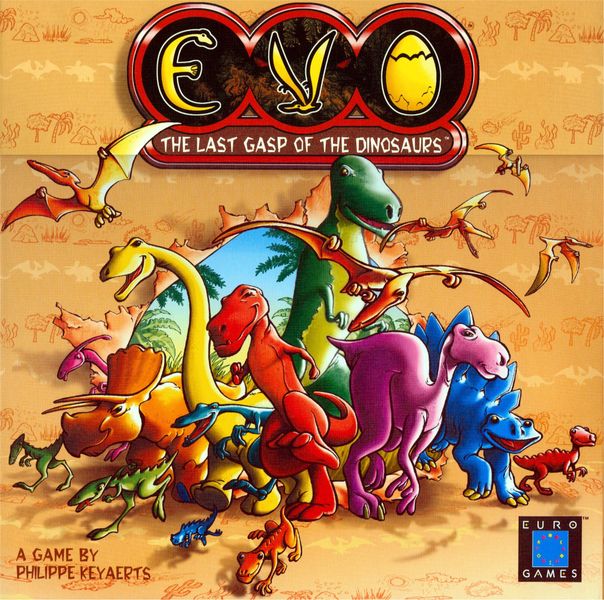Evo (2001) Board Game
Evo is a board game that was released in 2001, designed by Philippe Keyaerts and published by Eurogames. The game is set in a prehistoric world where players take on the roles of evolving species, competing for dominance in a changing environment.
Game Components of Evo
How To Setup Evo
Setting up Evo involves assembling the main game board in one of four configurations based on the number of players: small-small for three players, small-large or large-small for four players, and large-large for five players. Each player receives a player board, three Event cards, a stack of dino tokens, and places a starting dino token on their designated hex. Players also place their scoring markers on the starting score of 10.
Gameplay Mechanics and Game Objective
Player Experience
Playing Evo is a dynamic experience where the constantly changing climate keeps players on their toes. The game requires strategic thinking to adapt to the shifting environmental conditions and to outmaneuver other players. The balance of power frequently shifts, making it challenging for any one player to dominate the game. The auction mechanism for gene mutations adds a layer of complexity and interaction, while the event cards introduce unpredictability.
Pros
Cons
Personal Thoughts on Evo
Evo is ideal for players who enjoy strategic games with a strong thematic element. It is suitable for players aged 12 and above and is best played with 3-5 players. The game’s unique blend of bidding, territorial management, and adaptation to environmental changes makes it a standout in the board game community. If you’re looking for a game that challenges your strategic thinking and keeps you engaged through its dynamic gameplay, Evo is an excellent choice. However, it may not be the best fit for those who prefer simpler, more straightforward games or those who are heavily averse to luck-based elements.
We are supported by our audience. When you purchase through links on our site, we may earn an affiliate commission, at no extra cost for you. Learn more.

